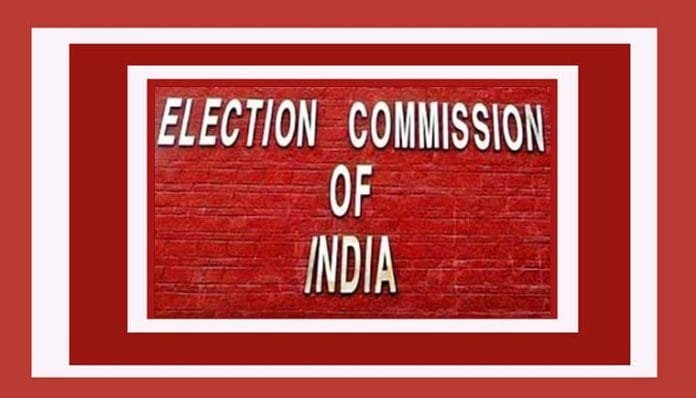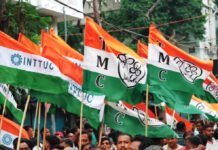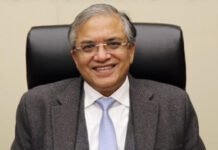Amid rising political tensions and opposition allegations surrounding the Bihar Assembly Election 2025, the Election Commission of India (ECI) has issued a robust clarification regarding the special intensive review of the voter list. The Commission asserts that this periodic revision is a constitutional obligation aimed at maintaining an accurate and up-to-date electoral roll, not a political tool for exclusion.
60% Voters Will Not Need Additional Documents: ECI Assures
Addressing public concerns and political outcry, the Election Commission has made a key declaration — approximately 60% of Bihar voters will not be required to submit any additional documentation during the voter list update. Voters whose details match the 2003 electoral roll, now made publicly available online, can use that as sufficient verification when filling the current enumeration forms.
This move significantly reduces the burden of documentation for a majority of the electorate, ensuring smoother processing and reducing the risk of disenfranchisement.
Why Voter List Review Is Mandatory
According to Article 326 of the Indian Constitution, only Indian citizens aged 18 or above who are ordinarily residents in their constituencies are eligible to vote. However, voter eligibility can fluctuate due to deaths, migration, or newly eligible youth turning 18. This demographic evolution necessitates the regular cleansing and updating of voter records to ensure:
No ineligible individuals remain on the rolls,
All eligible citizens are registered,
Electoral fraud is minimized, and
Voting rights are preserved with utmost transparency.
The Election Commission emphasized that this dynamic nature of the electoral roll makes revisions not just necessary, but legally required under the Representation of the People Act, 1950 and Voter Registration Rules, 1960.
Opposition Criticism and the Commission’s Rebuttal
Several opposition parties have alleged that the current voter roll revision could be manipulated by state agencies to deliberately exclude voters, particularly from marginalized communities or political strongholds. In response, the ECI firmly clarified that:
The process is conducted transparently and by the book,
There is no hidden agenda or targeting of specific demographics,
Every action taken is backed by rules in force for over seven decades,
The Commission is open to public scrutiny and judicial oversight.
The ECI reiterated that the exercise aims at accuracy and inclusivity, not exclusion.
Online Access to Bihar’s 2003 Voter List: A Game-Changer
To bolster transparency and public participation, the Election Commission has published the entire 2003 Bihar voter list on its official website. This list contains details of 4.96 crore registered voters from that year and will serve as a crucial point of reference during the ongoing enumeration process.
Benefits of the 2003 Voter List Publication:
Citizens can cross-check and validate their historical presence on the rolls.
Voters can use this list as a documentary proof, reducing the need for fresh identity documentation.
Families can trace ancestral voter records to simplify registration for current generations.
Family Linkage Mechanism: Easing Voter Verification
The Election Commission has also announced a family-linkage provision for applicants whose names don’t appear in the 2003 list. If a voter can demonstrate that either of their parents were listed in the 2003 electoral roll, they can leverage that family connection for authentication.
In such cases:
No documents are needed for the parent listed in 2003,
Only the applicant needs to provide personal documentation,
This streamlined process is expected to benefit millions of first-time or unlisted voters.
The Law Behind Voter List Revisions
The Election Commission operates under a well-defined legal framework. The key statutes governing electoral roll maintenance include:
Representation of the People Act, 1950 – Establishes the structure for electoral roll preparation and revision.
Voter Registration Rules, 1960 – Dictates the procedures for inclusion, deletion, and correction of voter entries.
These laws empower the Commission to conduct both summary revisions (typically annually) and special intensive revisions (in election years or during significant updates).
Historical Consistency: A 75-Year Practice
The Commission emphasized that such revisions have occurred consistently for over 75 years, cutting across party lines, state governments, and electoral outcomes. Each year, millions of new voters are added, and outdated entries are removed or corrected — a routine democratic process.
Digital Transformation of Voter Services
To increase accessibility and reduce voter inconvenience, the Election Commission has adopted digital tools and platforms for verification and submission. Key initiatives include:
Online portal for 2003 voter list access
Digital form submission for inclusion
Real-time tracking of application status
SMS and email alerts for verification progress
These tools are part of the ECI’s broader Digital India integration, ensuring that every eligible Indian can exercise their right to vote without bureaucratic hurdles.
Key Steps for Bihar Voters to Validate Their Status
To ensure smooth participation in the upcoming assembly election, voters in Bihar are advised to:
Access the 2003 voter list via the Election Commission’s website.
Search for their own or their parent’s name to verify presence.
If listed, fill out the updated enumeration form online or offline.
If not listed, prepare to submit valid identity and residence documents.
Use the family linkage rule wherever applicable to simplify documentation.
This proactive approach can prevent last-minute issues and ensure uninterrupted voting rights.
Combating Misinformation with Facts
The Election Commission also cautioned against the spread of misinformation regarding the voter list update. The body called upon political parties, civil society groups, and media to fact-check claims and promote civic awareness instead of amplifying unverified narratives.
It urged all stakeholders to collaborate in the shared goal of conducting free, fair, and inclusive elections — a hallmark of Indian democracy.
Conclusion: Voter List Update Is a Safeguard, Not Suppression
The 2025 Bihar Assembly Election is poised to be a pivotal event in the state’s political landscape. As part of its preparations, the Election Commission’s actions are not just procedural — they are fundamental to the democratic fabric of the nation.
With over 60% of voters spared additional documentation, a transparent verification mechanism, and easy digital access to historic records, the system is geared toward empowering citizens, not excluding them. The Election Commission’s firm stance and clear communication reaffirms its commitment to an inclusive, impartial, and transparent electoral process.
















